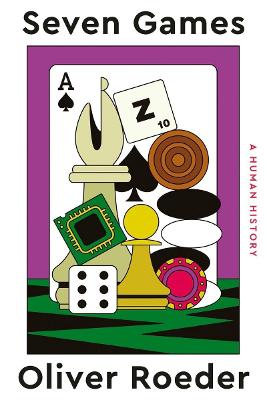Reviewed by annieb123 on
Seven Games: A Human History is an engaging history of human development through our (probably) unique ability to enjoy games (not just play) capably examined by Dr. Oliver Roeder. Due out 25th Jan 2022 from W. W. Norton, it's 320 pages and will be available in hardcover, audio, and ebook formats.
I've long been interested in games, gaming, history, psychology, and I'm a professional bionerd in my day job. This book really does represent the confluence of all those interests and is like some sort of Venn diagram bullseye for me. I was fascinated from the first chapter. That being said, the author writes very accessibly and well and this is a book for laypeople interested in games and how they have shaped and sometimes defined human history.
There are plenty of anecdotal stories relayed here: a devoutly religious mathematician who dominated at checkers for decades (with a mysterious Fisher-esque abrupt hiatus in the middle), computer programs and the theorists behind them, a Kiwi ascetic hermit who lives in Malaysia and who, after memorizing the French dictionary, won the French national scrabble championship without the benefit of speaking French. Dr. Roeder relays these stories (and more) with wit and warmth and I really enjoyed reading this book.
The unabridged audiobook version has a run time of 9 hours and 11 minutes and is capably narrated by William Sarris. He has a warm and nuanced voice with a non-intrusive (midwestern?) accent which is perfect for this nonfiction selection. The sound and recording quality and production values are high throughout the recording.
This is an interesting book, full of fun and engaging trivia and actual history and would be a good selection for public or school library acquisition, gift giving, or for games-interested general readers. No previous mathematics knowledge required and no "heavy lifting" involved.
Five stars.
Disclosure: I received an ARC at no cost from the author/publisher for review purposes.
Reading updates
- Started reading
- 8 December, 2021: Finished reading
- 8 December, 2021: Reviewed
- Started reading
- Finished reading
- 8 December, 2021: Reviewed
